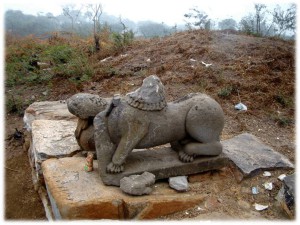The King’s Expelled Son
Once, a king, in a moment of anger, expelled his son from the kingdom. The prince, unskilled and uneducated, was left without a means to make a living. The only skill he possessed was a rudimentary knowledge of singing and dancing, which he used to beg on the streets of a distant town in a hot, arid land.
The Prince’s Transformation
For ten years, the prince lived as a homeless beggar, his royal identity forgotten. During this time, he unknowingly matured into a kingly figure, even though he was seen as a faceless wanderer. As the king grew older, he became anxious about his kingdom’s future and instructed his prime minister to locate his estranged son and bring him back to assume the throne.
The Prime Minister’s Search
The prime minister eventually found the prince in a state of destitution, begging for money to buy sandals. Despite his tattered appearance and sunburned face, the prime minister recognized him immediately. He conveyed the king’s pardon and invitation to return to the kingdom.
The Prince’s Realization
Upon hearing of his father’s forgiveness, the prince’s demeanor changed instantly. He discarded his beggar’s bowl and assumed the posture of a king. He instructed the prime minister to procure fine clothes and a bath for him. As he climbed into the royal chariot, he ignored the crowd of people who had once given him alms. When they questioned his sudden change, he explained that as long as he forgot who he was, he remembered them; now that he remembered his true identity, he no longer saw himself as a beggar.
The Moral of the Story
This story illustrates a profound truth about spiritual realization. The process of recognizing one’s true nature is not about acquiring new skills but about remembering one’s inherent identity. Just as the prince’s royal nature was always within him, so too is our divine essence inherent in each of us.
Insights from the Śrīmad Bhāgavatam
- Eternal Identity (Bhāgavatam 1.2.20): The Śrīmad Bhāgavatam emphasizes that our true nature is eternal and beyond material transformations. Just as the prince’s royal nature was never lost, our spiritual identity is ever-present and unaffected by temporary conditions.
- Devotional Remembrance (Bhāgavatam 2.3.19): The Śrīmad Bhāgavatam speaks of devotional service as a means to remember one’s true self. Devotees who engage in pure devotion can awaken their inherent divinity, similar to how the prince remembered his identity upon learning of his father’s forgiveness.
- Transformative Power of Self-Realization (Bhāgavatam 10.14.28): Krishna’s teachings in the Śrīmad Bhāgavatam reveal that realization of one’s true self can lead to a complete transformation. When one fully understands their eternal nature, they transcend material limitations and realize their innate spiritual identity.
- Role of Divine Grace (Bhāgavatam 10.33.39): The narrative of the prince aligns with the principle of divine grace. Just as the prince’s transformation was catalyzed by his father’s grace, the Śrīmad Bhāgavatam highlights that divine grace is essential for awakening to one’s true nature.
- Divine Awakening (Bhāgavatam 11.14.27): The story parallels the teachings found in the Śrīmad Bhāgavatam where Krishna, through His divine intervention, helps individuals remember their true nature. The prince’s realization mirrors how divine guidance can awaken a person to their spiritual reality.
Conclusion
The story of the prince illustrates the profound truth of spiritual awakening found in the Śrīmad Bhāgavatam. Just as the prince’s identity was always royal despite his beggar’s life, our true divine nature is eternally present, awaiting realization. Through divine guidance and remembrance, as taught in the Bhāgavatam, one can transcend material conditions and awaken to their eternal, spiritual self.



